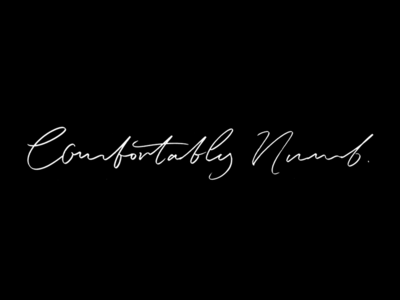|
I have been reading Brené Brown’s brilliant book, “Daring Greatly” for several months. This book packs so much punch into one page alone, I find myself digesting the information slowly before trying to move on to more.
One of the pieces swirling about in my brain is her chapter on numbing, something she believes many people are doing on some level. She describes numbing activities as the following: staying crazy-busy, having a few alcoholic beverages after work, working overtime, eating sugar, playing fantasy football, that coffee habit, and taking prescription drugs or using illegal drugs. Other behaviors in this category might include sex, gaming, gambling and shopping — really anything giving us a quick, feel-good beta-endorphin hit in the brain or actions prone to invite compulsivity. When Brown looked at what are we numbing and why, she discovered “Americans are more debt-ridden, obese, medicated and addicted than we ever have been.” Why? “We’re desperate to feel less or more of something — to make something go away or to have more of something else.” Her book delves deeply into the culture and origins of shame. It’s no surprise her research revealed the “primary driver of numbing” stemmed from our struggles with worthiness and shame. She found we not only numb the pain that comes from feeling inadequate, but that anxiety and disconnection play a big role, too — and together, the combination is potent enough for us to seek shelter. Here were some common themes: we’re lonely; we feel isolated or unseen; we feel unworthy and inadequate; we’re overwhelmed by demanding lives; we have social discomfort. When people experience these feelings on varying levels, numbing “takes the edge off” or subdues those feelings, even though down deep, nothing changes. When those feelings are experienced on a deeper level, Brown said shame can lead to desperation, “and reactions to this desperate need to escape from isolation and fear can run the gamut from numbing to addiction, depression, self-injury, eating disorders, bullying, violence and suicide.” I can relate to this deeply. My craving for connection has been prevalent my entire life. My ability to find it and experience it is another thing entirely and my resulting feelings of feeling unloved or unworthy have led to a lifetime of numbing behaviors, some in the deep end of the serious pool. I have successfully extracted myself from the most damaging of these over the years, but still find myself facedown in a carton of ice cream from time to time and I struggle with how awful my feelings actually feel. Someone told me once my feelings won’t kill me, and despite the sensation they surely will, when I can hang on through the discomfort, it passes and I move on. If I give myself the benefit of feeling them, it actually means I won’t have to revisit them later. Numbing only seems to postpone reuniting with them, or somehow giving them more power than they deserve. On the other side of that coin, some of my feelings are bogus and shouldn’t even be given credence because they are based in assumptions, expectations and self-centeredness. All of it has led me to try and figure out how to become less sensitive to sensations of being left out or ignored, undervalued or unacknowledged — tumultuous emotions I experience on a regular basis. So I went to a place where one can easily feel both small and large, left out and popular all in the same hour — Facebook — to ask how others cope. A productive post with conversation ensued. Several chimed in they’d be listening for the answers while others reported what they’ve learned. Top of the list: nothing is personal or intentional, it’s not about us, we’re not that significant in other people’s lives, people don’t think about their responses and how they affect others, and people are self-absorbed. Strategies for overcoming it included turn the ‘give a crap’ knob down to zero, don’t dwell on hurt feelings or overanalyze them, be empathetic, don’t make assumptions or take things personally, be happy with and accepting of who you are, remove expectations, don’t let others define us, and be direct about your needs or invite conversation to reach an understanding. Those suggestions make sense and ring true — it’s just remembering them instead of reverting to my pre-set sensitivity dial settings. Then maybe, just maybe, those numbing crutches will disappear and I can inhabit my happiness fully unfettered. This column ran in The Journal on Sunday, January 15, 2017.
0 Comments
|
Summary
A collection of columns, articles and general a-musings. Archives
July 2024
|
Katherine Cobb


